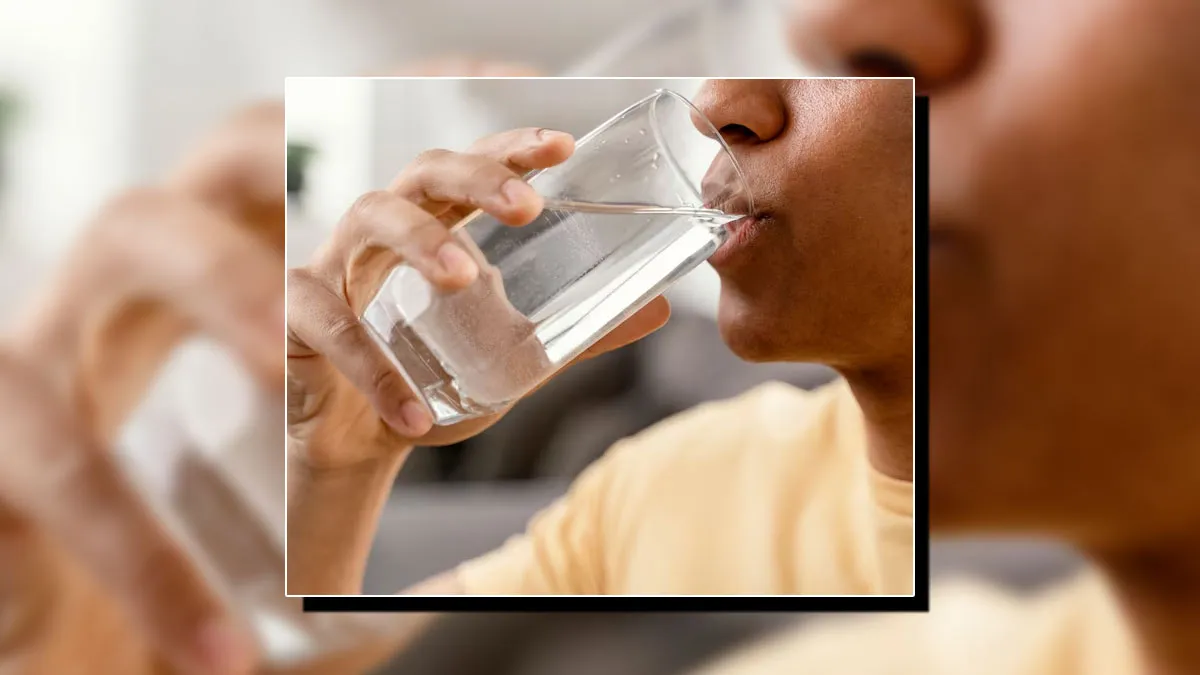
Water plays a vital role in human health, comprising 70 per cent of our body composition. During winter months, maintaining proper hydration becomes especially crucial, despite reduced thirst signals. Dt Priyanka Bandal, Senior Dietitian at Manipal Hospital, Baner, Pune, shares critical insights about winter dehydration risks and prevention strategies.

During winter, cold weather can suppress the feeling of thirst, making you less likely to drink water even when your body needs it. “The body’s natural thirst mechanism is less active in colder months, which increases the risk of dehydration,” says Dt Priyanka Bandal. Without proper hydration, your body struggles to maintain a healthy temperature, making it more vulnerable to the cold. “Dehydration can hinder the body's ability to regulate temperature, which is especially critical in winter,” adds Bandal.
Dehydration can also impair your immune system, leaving you more susceptible to common seasonal illnesses like colds and flu. Dt Bandal explains, “Water plays a crucial role in the function of the immune system. Without adequate hydration, the body's defences become weaker, and your chances of falling ill increase.” Drinking enough water helps flush out toxins and keep your body’s defences strong, reducing the likelihood of getting sick.
The dry winter air, coupled with indoor heating, can strip your skin and lips of moisture, leading to dryness, flakiness, and discomfort. Dt Priyanka Bandal advises, “Proper hydration is key to combating dry skin and lips in winter. Water keeps your skin hydrated from within, helping maintain a healthy, glowing complexion even in cold weather.” For those battling dry skin, staying hydrated is an easy but effective way to address the issue.
Even mild dehydration can cause fatigue and negatively impact mental clarity. In winter, when you’re less likely to feel thirsty, dehydration can sneak up on you, causing sluggishness and difficulty concentrating. "Hydration is vital for maintaining energy levels and cognitive function," says Dt Bandal. “Inadequate water intake can lead to feelings of fatigue, making it harder to focus on daily tasks.”
Don't Miss: Can Stomach Acid Damage Your Teeth And What To Do, Dentist Shares Inputs
Lack of hydration can slow down digestion, leading to issues like constipation, which is common during the winter months. Dt Bandal emphasises, “Dehydration can make digestion sluggish, and with the decrease in fibre-rich food intake during winter, constipation can become an issue.” Drinking enough water helps keep the digestive system functioning smoothly, preventing discomfort and digestive problems.
Water plays a vital role in maintaining good blood circulation, which is crucial in keeping extremities warm during winter. Dt. Priyanka Bandal explains, “When you’re dehydrated, your blood volume decreases, making it harder to circulate blood efficiently, especially to your hands and feet.” Proper hydration helps improve circulation, ensuring that your body remains warm and your extremities are well-supplied with blood.

Although it's harder to feel thirsty in winter, there are ways to ensure you’re drinking enough water. Dt Bandal shares a few practical tips to stay hydrated during the colder months:
While the urge to drink water may not be as strong during winter, staying hydrated is just as important for your health. Dt Priyanka Bandal warns, “Dehydration in winter can lead to a variety of health issues, from fatigue to dry skin and weakened immunity.” Make hydration a priority this season to ensure you remain healthy, energised, and comfortable throughout the colder months.
Don't Miss: 7 Weight Loss Mistakes You Should Avoid Making
Image Courtesy: Freepik
Also watch this video
Herzindagi video
Our aim is to provide accurate, safe and expert verified information through our articles and social media handles. The remedies, advice and tips mentioned here are for general information only. Please consult your expert before trying any kind of health, beauty, life hacks or astrology related tips. For any feedback or complaint, contact us at [email protected].